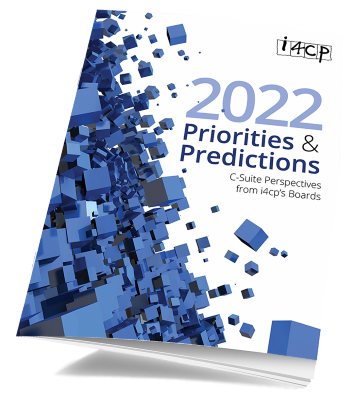 As with their HR colleagues more broadly, talent and learning leaders and their teams have been relied upon more than ever in the past couple of years to solve major business challenges such as maintaining employee engagement during chaotic times, the pivot to remote training and upskilling, and rethinking what it means to be an effective leader.
As with their HR colleagues more broadly, talent and learning leaders and their teams have been relied upon more than ever in the past couple of years to solve major business challenges such as maintaining employee engagement during chaotic times, the pivot to remote training and upskilling, and rethinking what it means to be an effective leader.
Learning and talent functions will be called upon in 2022 to support a range of still evolving aspects of work, from broad labor supply/demand issues to optimizing remote, hybrid, and flexible work arrangements, and the increasing use of all things digital, which pressures employees to upskill and reskill to remain relevant.
L&D and talent leaders will also be called on to support DE&I education and enable organization-wide change. No longer a check-the-box compliance activity, simple bias training has been replaced by an expansive portfolio of continuous educational resources and opportunities on a range of topics including allyship, inclusion, and belonging.
The following priorities and predictions are excerpted from our 2022 Priorities & Predictions report, based on guidance from our Chief Learning & Talent Officer Board.
1. Positioning talent development as the foundation of EVP
A resignation wave is only one obvious challenge; the market for IT and healthcare workers remains hugely competitive, as are fields such as engineering, sales, customer service, finance, logistics, and skilled trades. Shortages are felt in all jobs and at all levels. This requires an all-hands-on-deck approach across HR that addresses the many factors involved in talent retention and attraction.
Talent and learning leaders will rise to the occasion by refocusing on (and where necessary) renovating their employee value propositions. In the last two years, people have reconsidered their working lives and priorities. They have developed deeper concerns about their safety, well-being, the meaning of career, and the importance of purpose in their work. This intentionality and reflection on life and work has led employees to recognize where change is needed. They want their work to be judged on clear goals and outcomes, not with physical presence and office politics. They want forward-looking learning and career development opportunities, such as microlearning and job rotations, not stale, lengthy, and ineffective courses. And most of all they want flexibility wherever possible, from hybrid and remote work arrangements to new workday and workweek options.
2. Developing new skills for all managers
What was initially a need to shore up skills at leading virtual teams in 2020 has expanded to now include a range of soft skills required by all managers and leaders.
Existing managers and leaders need new and improved skills in many areas, but there are also many first-time managers who have been promoted into people leadership roles in the past two years, especially recently as the great resignation and reshuffling of employees between organizations has increased. The high-potentials of yesterday (if they are still with the company) have been promoted once or even twice and will flounder in areas such as hiring, onboarding, performance management, developing their teams, and more if they are not supported by their talent and learning partners.
3. Creating a culture of learning
Almost every organization has or is evolving its approach to talent and learning to a skills-centric model, but where they are on this journey obviously varies. The need to move forward thoughtfully but also as quickly as possible will keep talent and learning leaders focused on reconsidering job roles and descriptions, identifying and cataloging employees' skills, determining future skill needs, and where gaps exist, providing evermore targeted upskilling and reskilling opportunities.
A variety of approaches will be used, such as enabling talent mobility through internal talent marketplaces, and reimagining and redesigning career paths and requirements. Where needed, even more focus will be paid to developing and maintaining an organization-wide learning culture, as it has both direct and indirect impacts on many critical business outcomes, from general employee retention and productivity to discrete product innovation and sales.
4. Supporting the achievement of measurable diversity, equity, and inclusion goals
The heightened awareness and focus on DE&I that occurred in 2020 continued in 2021 and is rightly here to stay. For many organizations, it has matured from being an added consideration or afterthought to becoming an integral part of how business gets done. Talent and learning leaders are critical components of any organization's attempt to improve culture and inclusion, from providing an ever-expanding library of educational resources, to facilitating authentic conversations among peers, or rooting out any remaining bias in people systems, processes, and behaviors.
For more insights from Chief Learning & Talent Officers, download our 2022 Priorities & Predictions report.


No comments:
Post a Comment